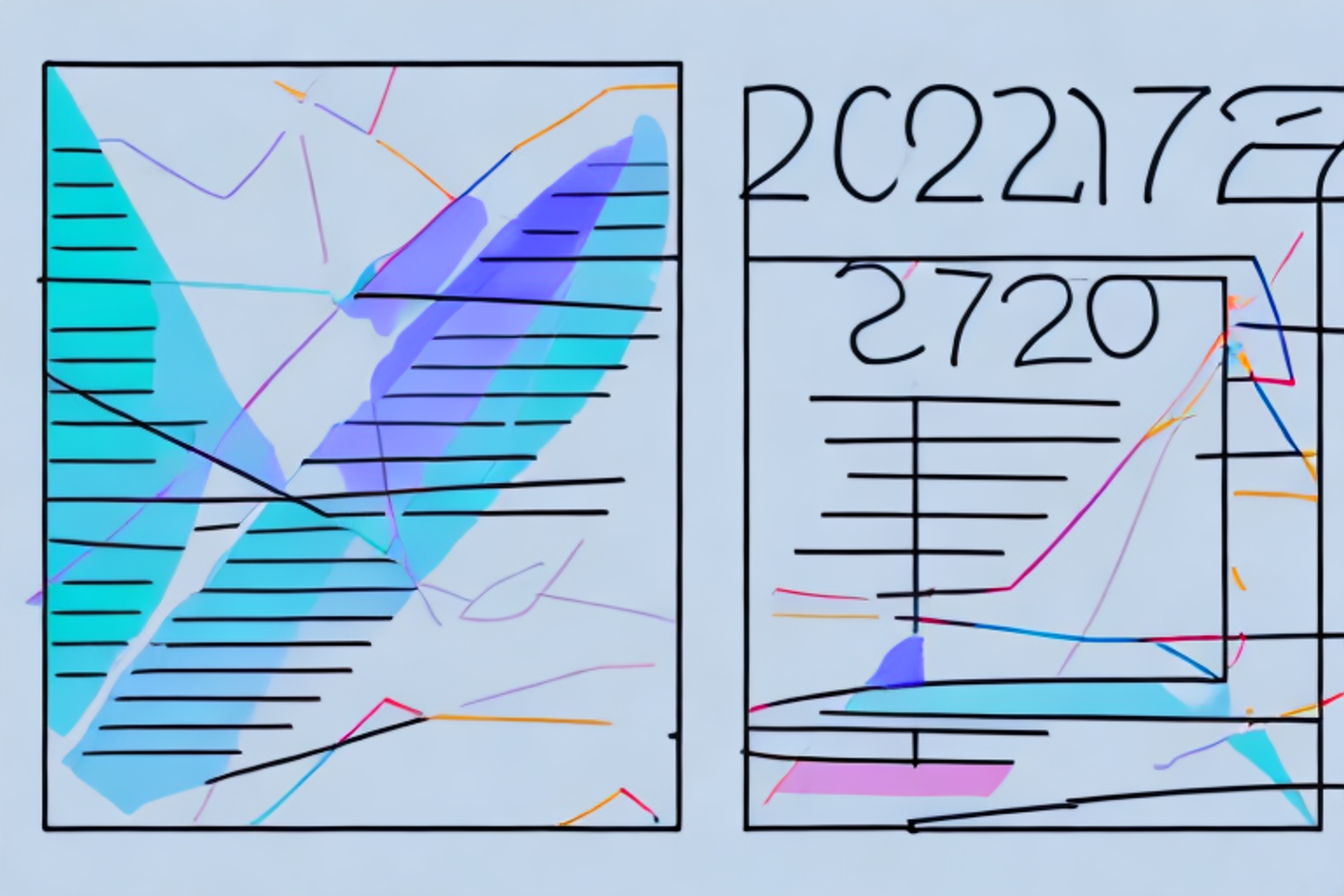
Join a free event
Learn from top coaches and industry experts in live, interactive sessions you can join for free.
Table of Contents
The Law School Admission Test (LSAT) is a standardized exam that prospective law students must take in order to apply to law schools in the United States. One of the most important components of the LSAT is the percentile score, which is used by law schools to assess the candidate's relative performance compared to other test takers. In this article, we will examine the significance of LSAT percentiles in 2023 and how they affect law school admissions.
Understanding the LSAT Percentile System
The LSAT percentile system is a way of ranking test takers on a scale of 0 to 99. The percentile score represents the percentage of test takers that scored lower than the candidate. For example, if a candidate scores in the 75th percentile, it means that 75% of test takers scored lower than they did. The percentile score is a crucial component of the LSAT score report and is used by admissions officers to determine the candidate's relative performance on the exam.
It's important to note that the LSAT percentile system is based on the performance of all test takers within the past three years. This means that the percentile score can fluctuate slightly from year to year, as the pool of test takers changes. However, the overall percentile ranking remains a reliable indicator of a candidate's performance compared to others who have taken the exam.
How LSAT Percentiles Affect Law School Admissions
The LSAT percentile score is an essential factor that law schools consider when evaluating applications. Law schools use the LSAT percentile score because it is a standardized way of comparing the performance of test takers from different years. Admissions committees use percentile scores to determine how the candidate's LSAT performance stacks up against other candidates who took the exam in the same year.
The LSAT percentile score is not the only factor that law schools consider when evaluating applications. Admissions committees look at candidates' GPA, work experience, extracurricular activities, and personal statements. However, the LSAT score is typically one of the most important components of the application because it is the only standardized measure of the candidate's ability to think critically, solve problems, and reason effectively.
Another important aspect of LSAT percentiles is that they can impact a candidate's chances of receiving scholarships or financial aid. Many law schools offer scholarships to students who score in the top percentiles on the LSAT. Therefore, a high percentile score can not only increase a candidate's chances of being accepted into a law school but also increase their chances of receiving financial assistance.
It is also worth noting that LSAT percentiles can vary depending on the year the exam was taken. For example, a score that places a candidate in the 90th percentile one year may only place them in the 85th percentile the following year. This is because the percentile score is based on the performance of all test takers in a given year. Therefore, it is important for candidates to stay up-to-date on the average LSAT percentiles for the schools they are interested in applying to.
The Historical Significance of LSAT Percentiles in Law School Admissions
LSAT percentile scores have been an essential component of law school admissions for several decades. The LSAT was first administered in 1948, and since then, it has been used as a standardized measure of candidates' aptitude for law school. In the early years of the LSAT, it was primarily used to assess the reading comprehension skills of test takers. Over time, the LSAT has evolved to include more sections that test other skills, such as logic, reasoning, and analytical skills.
LSAT percentiles are used by law schools to compare the performance of applicants against each other. The percentile score indicates the percentage of test takers who scored lower than the applicant. For example, if an applicant scored in the 75th percentile, it means that they performed better than 75% of test takers. Law schools use this information to evaluate the competitiveness of an applicant's score and to make admissions decisions. LSAT percentiles are also used by law schools to assess the overall quality of their applicant pool and to make adjustments to their admissions criteria.
How LSAT Percentiles Have Changed Over Time
Since the LSAT was first administered, the percentile scores have changed over the years. In the early years of the exam, the median LSAT score was around 480, and the 90th percentile score was around 555. In 2023, the median LSAT score was around 151, and the 90th percentile score was around 165. This indicates that the performance of test-takers has improved over time, and law schools have adjusted their admissions criteria accordingly.
One factor that may have contributed to the improvement in LSAT scores over time is the availability of LSAT prep courses and materials. With the rise of online learning and test preparation resources, students now have access to a wide range of study materials and strategies to help them prepare for the exam.
Another factor that may have played a role in the changing LSAT percentiles is the evolving nature of the legal profession. As the legal field has become more competitive and specialized, law schools may be attracting a different type of student who is better prepared for the LSAT and has a stronger academic background.
LSAT Percentiles vs. Score: What Matters More?
While the LSAT percentile score is an essential factor in law school admissions, it is not necessarily the most important factor. Law schools consider a variety of components when evaluating applications, and the LSAT percentile score is just one part of the puzzle. However, it is important to note that LSAT percentiles carry a significant weight in the evaluation process. While the absolute LSAT score is also important, the percentile score provides a more accurate measure of a candidate's performance relative to other test takers.
It is also worth noting that LSAT percentiles can vary depending on the year and the pool of test takers. For example, a percentile score of 90 in one year may not be equivalent to a percentile score of 90 in another year. This is because the percentile score is based on the performance of all test takers in a particular year. Therefore, it is important to keep in mind the context of the percentile score when evaluating its significance in the law school admissions process.
The Role of LSAT Percentiles in Scholarship Opportunities
LSAT percentile scores can also impact a candidate's eligibility for merit-based scholarships offered by law schools. Many law schools offer scholarships that are awarded based on the strength of the applicant's LSAT score. Admissions committees use the LSAT percentile score as a way of ranking candidates based on their performance compared to other test takers. Candidates who score in the top percentiles are more likely to receive merit-based aid.
It is important to note that while LSAT percentiles are a significant factor in scholarship opportunities, they are not the only factor considered by law schools. Admissions committees also take into account a candidate's undergraduate GPA, personal statement, letters of recommendation, and other factors when making scholarship decisions. Therefore, it is important for candidates to strive for excellence in all aspects of their application in order to maximize their chances of receiving merit-based aid.
How to Improve Your LSAT Percentile Score
If you are planning on applying to law school, you may be wondering how you can improve your LSAT percentile score. One of the best ways to improve your LSAT score is to take practice exams and review your performance to identify areas where you need to improve. You can also consider taking LSAT prep courses or working with a tutor. Dedication, hard work, and a strategic study plan can significantly improve your LSAT percentile score.
Another important factor to consider when trying to improve your LSAT percentile score is time management. The LSAT is a timed exam, and you will need to be able to answer questions quickly and accurately. One way to improve your time management skills is to practice taking timed exams and working on pacing yourself. Additionally, make sure to take breaks during your study sessions to avoid burnout and fatigue, which can negatively impact your performance on the exam.
Common Misconceptions About LSAT Percentiles
There are several myths and misconceptions about LSAT percentiles that can be confusing for test takers. One of the most common misconceptions is that the percentile score only reflects how many questions you answered correctly. However, the percentile score compares your performance to other test takers, so it is a relative measure of your performance. Another common misconception is that LSAT percentiles are the same as raw scores, but they are two different measures.
Another common misconception about LSAT percentiles is that they are the only factor that law schools consider when evaluating applicants. While LSAT percentiles are an important factor, they are not the only one. Law schools also consider other factors such as undergraduate GPA, work experience, personal statement, and letters of recommendation.
It is also important to note that LSAT percentiles can vary depending on the test administration. This is because the percentile score is based on the performance of other test takers who took the same test. So, if a particular test is more difficult than usual, the percentile score may be lower even if you answered the same number of questions correctly as you would on an easier test.
Top Law Schools and Their Average LSAT Percentile Requirements
The LSAT percentile score requirements for law schools vary depending on the school's admissions criteria and the caliber of applicants that apply. However, many top law schools have high LSAT percentile cutoffs. For example, at Yale Law School, the median LSAT percentile for accepted students is 99, while at Harvard Law School, it is 98.5. Candidates applying to top law schools must aim to score in the top percentiles to be competitive.
The Impact of COVID-19 on LSAT Percentiles and Law School Admissions in 2023
The COVID-19 pandemic has significantly impacted LSAT administrations and law school admissions in 2023. Many LSAT administrations were canceled or moved online, which led to concerns about the validity and comparability of scores. Additionally, law schools have had to adjust their admissions criteria and policies in response to the pandemic. The pandemic has created uncertainty and instability in the law school admissions process, and candidates need to stay informed and adaptable.
Predicting Future Trends in LSAT Percentile Requirements for Law Schools
It is difficult to predict precisely how LSAT percentile requirements for law schools will evolve in the coming years. However, it is likely that high LSAT percentile scores will continue to be a critical factor in law school admissions, particularly at top law schools. Additionally, as the LSAT exam evolves to reflect changes in legal education and practice, the importance of LSAT percentile scores may shift towards other skills and aptitudes.
Conclusion
In conclusion, LSAT percentiles are a crucial aspect of law school admissions in 2023. Admissions committees use LSAT percentiles to evaluate a candidate's performance relative to other test takers. While LSAT percentiles are not the only factor that law schools consider when evaluating applications, they carry significant weight. Candidates who are planning on applying to law school should aim to achieve high LSAT percentile scores to be competitive.
Browse hundreds of expert coaches
Leland coaches have helped thousands of people achieve their goals. A dedicated mentor can make all the difference.

















